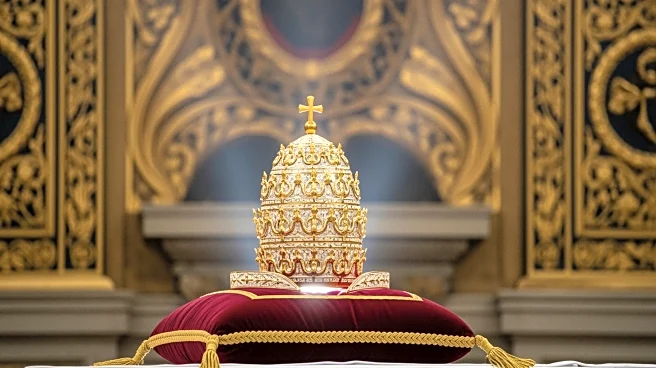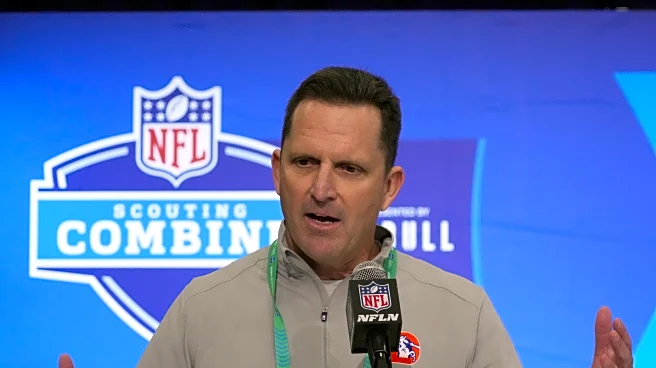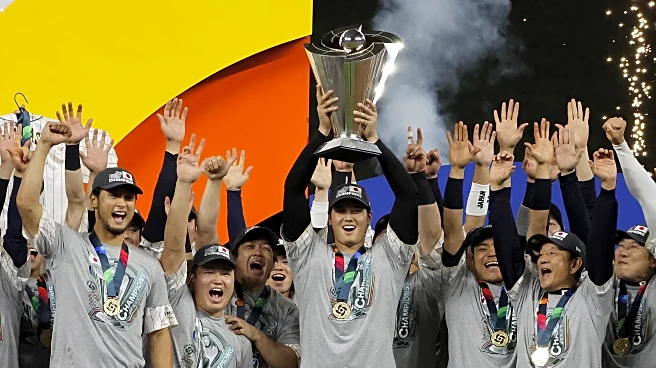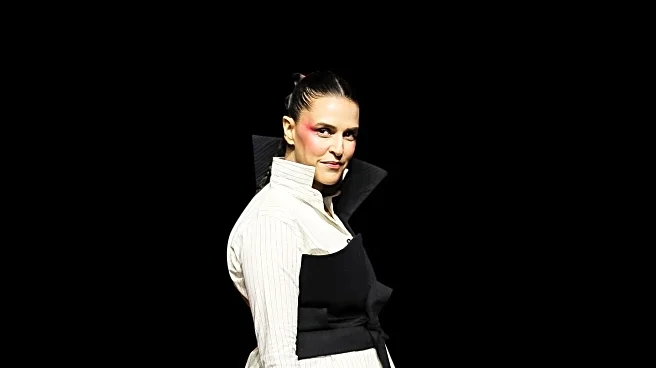What's Happening?
Pope Leo XIV has announced plans to convene the College of Cardinals for an extraordinary consistory at the Vatican on January 7-8, 2026. This meeting aims to allow the Pope to personally consult with the cardinals and gather their opinions on undisclosed
issues. The decision follows requests from many cardinals during pre-conclave general congregations earlier this year, emphasizing their role as advisors to the Pope. The meeting is categorized as an extraordinary consistory, which is convened for addressing particular needs of the Church or grave affairs. This will be the second meeting between Pope Leo and the College of Cardinals since his election in May 2025.
Why It's Important?
The upcoming consistory is significant as it reflects Pope Leo XIV's commitment to a collegial style of governance, involving the cardinals more frequently in decision-making processes. This approach aligns with the priorities outlined by Pope Leo, including evangelization, care for the poor, and reform of the Curia. The meeting could influence the direction of the Church's policies and its global influence, as the cardinals represent diverse regions and perspectives. The gathering also raises questions about potential changes in the College of Cardinals, such as the creation of new cardinals or adjustments to the number of electors, which could impact future papal elections.
What's Next?
Following the consistory, Pope Leo XIV is scheduled to meet with the diplomatic corps accredited to the Holy See on January 9, 2026. This meeting will involve ambassadors from 184 states, potentially discussing international relations and the Church's role in global affairs. Additionally, the consistory will occur shortly after the closure of the Holy Door in St. Peter's Basilica, marking the end of the Jubilee Year 2025. Observers will be watching to see if Pope Leo continues the trend set by Pope Francis in selecting cardinals from non-traditional regions, which could further diversify the Church's leadership.
Beyond the Headlines
The extraordinary consistory may signal a shift towards more frequent and transparent consultations within the Church's hierarchy, potentially leading to more inclusive decision-making processes. This could enhance the Church's ability to address contemporary challenges and adapt to changing global dynamics. The meeting also underscores the importance of the cardinals' advisory role, which may lead to a more collaborative approach in handling critical issues facing the Church.
















